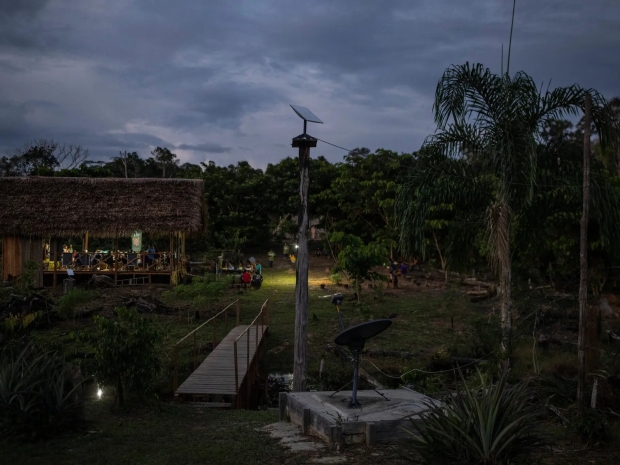While the internet has brought significant benefits to Marubo people, like improved communication and emergency response, it has also introduced challenges such as social media addiction, exposure to inappropriate content, and cultural erosion.
The New York Times reports said that after only nine months with Starlink, the Marubo are already grappling with the same challenges that have racked American households for years: teenagers glued to phones, group chats full of gossip; addictive social networks; online strangers, violent video games; scams; misinformation; and minors watching pornography. Modern society has dealt with these issues over decades as the internet continues its relentless march.
The Marubo and other Indigenous tribes, which have resisted modernity for generations, are now confronting the internet's potential and peril simultaneously while debating what it will mean for their identity and culture.
One Marubo leader, Enoque Marubo, admitted that the internet was an immediate sensation. "It changed the routine so much that it was detrimental. In the village, if you don't hunt, fish and plant, you don't eat."
Leaders realized they needed limits. The internet would be switched on for only two hours in the morning, five hours in the evening, and all day on Sunday. During those windows, many Marubo are crouched over or reclined in hammocks on their phones.
They spend lots of time on WhatsApp. There, leaders coordinate between villages and alert the authorities to health issues and environmental destruction. Marubo teachers share lessons with students in different villages. And everyone is in much closer contact with faraway family and friends.
To Enoque, the biggest benefit has been in emergencies. A venomous snake bite can require swift rescue by helicopter. Before the internet, Marubo used amateur radio, relaying a message between several villages to reach the authorities. The internet made such calls instantaneously. "It's already saved lives," he said, showcasing the tribe's ability to adapt to new technologies.
In April, seven months after Starlink's arrival, more than 200 Marubo gathered in a village for meetings. Enoque brought a projector to show a video about bringing Starlink to the villages.
As proceedings began, some leaders in the back of the audience spoke up. The internet should be turned off for the meetings, they said. "I don't want people posting in the groups, taking my words out of context," another said.
During the meetings, teenagers swiped through Kwai, a Chinese-owned social network. Young boys watched videos of Brazilian soccer star Neymar Jr., and two 15-year-old girls said they chatted with strangers on Instagram. One said she now dreams of traveling the world, while the other wants to be a dentist in Sao Paulo.
This new window to the outside world had left many in the tribe feeling torn. The tribe's first woman leader TamaSay Marub
said: "Some young people maintain our traditions. Others just want to spend the whole afternoon on their phones."
This internal debate within the tribe about the internet's benefits and drawbacks adds a layer of complexity to their story.

